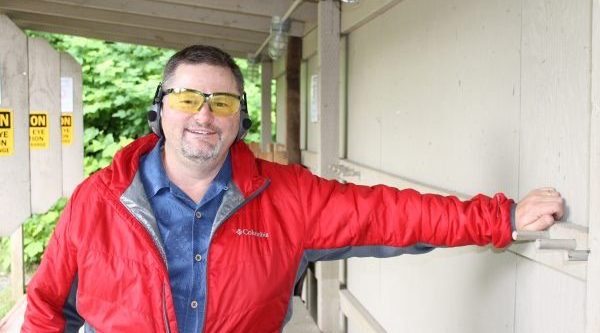
Buried on pages 13 and 14 of Thursday’s Washington State Supreme Court ruling that upheld the City of Seattle’s so-called “gun violence tax” are two statements from Justice Debra L. Stephens that might raise some eyebrows among those who have followed the gun tax court challenge in the state courts.
On Page 13, Justice Stephens writes for the majority, “There does not appear to be a ‘direct relationship’ between the amount of annual revenue the Ordinance is expected to generate ($300,000 to $500,000) and the economic burden of gun violence in King County (roughly $180 million per year).
On Page 14, Stephens reiterates, “However, in this case it does not appear that the Council made any attempt to correlate the economic burden of gun violence with the revenue generated by the tax.”
Yet in yesterday’s coverage of the ruling by KOMO, the Seattle ABC affiliate, an Associated Press story says this: “In 2014, Seattle became the first city in the country to directly fund gun violence research, City Councilman Tim Burgess said, and the results showed that gun violence costs Seattle and King County $180 million per year. That prompted the council to impose the tax to help defray those costs.”
Burgess issued a statement following the court ruling that said this: “Gun violence costs the City and County $180 million per year, and I believe the gun industry should help offset some of those costs.”
But it may turn out that the firearms industry doesn’t “help offset” any of those costs. Mike Coombs, owner of the Outdoor Emporium, which has been the single largest contributor to that tax in 2016, is considering moving his firearms and ammunition sales out of his current location, possibly to Bellevue or Issaquah. Outdoor Emporium was a plaintiff in this case.
Burgess let slip to a reporter, “I am OK if that’s what happens naturally in the marketplace. That’s not something we are driving or have any influence on.”
But the anti-gun former Council president, who instigated this tax in 2015, might easily be challenged on this. Even Justice Sheryl Gordon-McCloud observes in her nine-page dissent, “Seattle Ordinance 124833 has a very close relationship with the ‘purchase, sale, acquisition, [and] transfer’ of firearms–it targets them! Thus, while a uniform local tax that incidentally hits on sales of this product (while taxing various and sundry products) might not have a sufficient relationship with firearms to suffer preemption, this ordinance-which targets only firearms certainly does.”
Back in 1943, the U.S. Supreme Court decided a case called Murdock v. Pennsylvania. It has nothing to do with firearms or the Second Amendment. It was a First Amendment case dealing with the activities of a Jehovah’s Witness to distribute pamphlets.
The opinion was written by the late Supreme Court Associate Justice William O. Douglas, considered such an icon in Washington State as to have a wilderness area named in his memory in the Central Cascades west of Yakima, where he grew up and attended high school.
At issue in that case was a license tax assessed against the plaintiff for distributing the material and asking donations. But Justice Douglas had this to say:
“The First Amendment, which the Fourteenth makes applicable to the states, declares that ‘Congress shall make no law respecting an establishment of religion, or prohibiting the free exercise thereof; or abridging the freedom of speech, or of the press ….’ It could hardly be denied that a tax laid specifically on the exercise of those freedoms would be unconstitutional. Yet the license tax imposed by this ordinance is in substance just that.”
Later on, Douglas observed, “This tax is not a charge for the enjoyment of a privilege or benefit bestowed by the state. The privilege in question exists apart from state authority. It is guaranteed the people by the federal constitution.”
And he summed things up by explaining, “It is true that the First Amendment, like the commerce clause, draws no distinction between license taxes, fixed sum taxes, and other kinds of taxes. But that is no reason why we should shut our eyes to the nature of the tax and its destructive influence. The power to impose a license tax on the exercise of these freedoms is indeed as potent as the power of censorship which this Court has repeatedly struck down.”
In the 2010 Second Amendment Foundation case that nullified the Chicago handgun ban, the U.S. Supreme Court incorporated the Second Amendment to the states via the 14th Amendment, same as it had done with the First Amendment years ago, as Justice Douglas noted.
Of course, legal minds will argue that Murdock has nothing to do with the Seattle gun tax case. If Associate Justice Douglas were still around, that might be an interesting question to ask him.